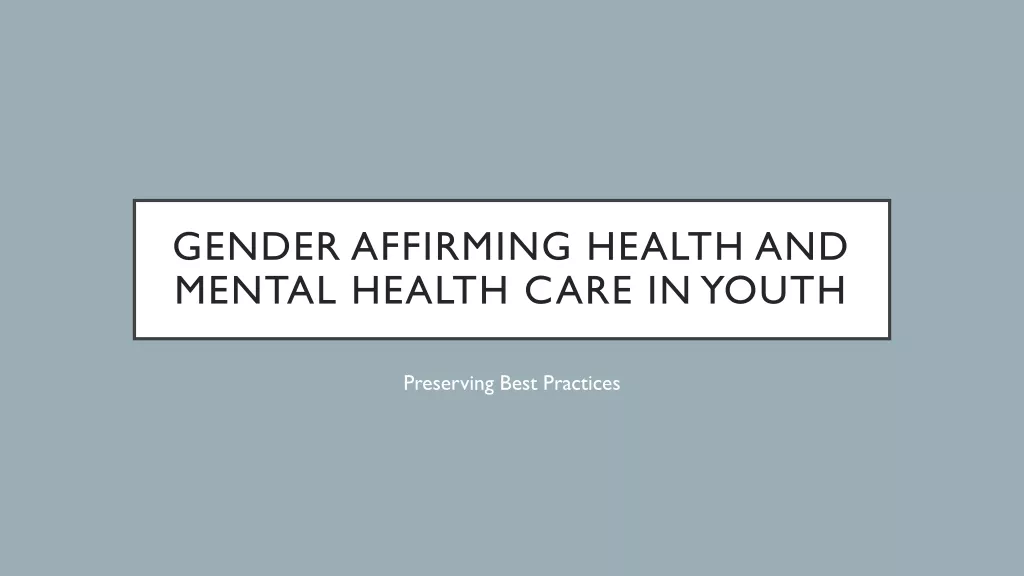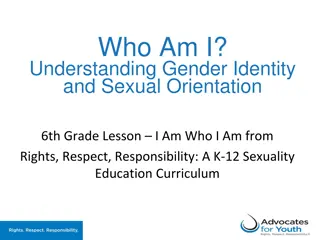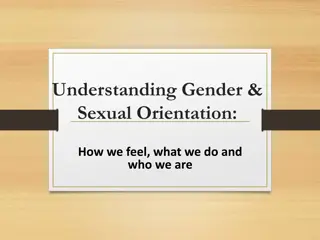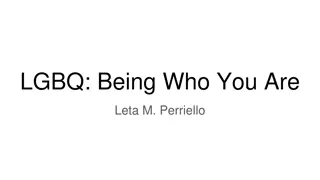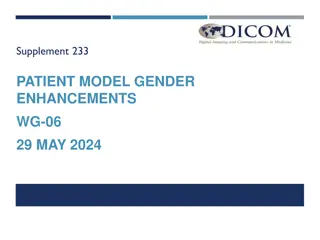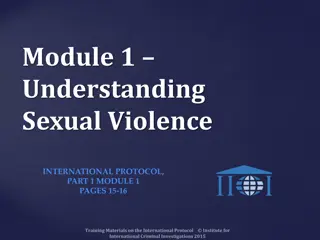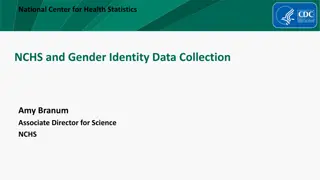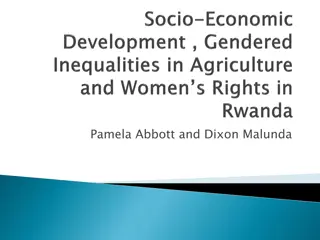Understanding Sexual Orientation and Gender Identity: Legal Perspectives and Human Rights
Explore legal decisions from around the world regarding the recognition and protection of sexual orientation and gender identity. From Nepal to Colombia to India, courts have emphasized the rights of individuals regardless of their orientation or identity. These cases reflect the evolving understanding of human rights and the importance of equality and non-discrimination.
Download Presentation

Please find below an Image/Link to download the presentation.
The content on the website is provided AS IS for your information and personal use only. It may not be sold, licensed, or shared on other websites without obtaining consent from the author. Download presentation by click this link. If you encounter any issues during the download, it is possible that the publisher has removed the file from their server.
E N D
Presentation Transcript
Definitions of SOGI Gender identity is understood to refer to each person s deeply felt internal and individual experience of gender, which may or may not correspond with the sex assigned at birth, including the personal sense of the body (which may involve, if freely chosen, modification of bodily appearance or function by medical, surgical or other means) and other expressions of gender, including dress, speech and mannerisms.
Sexual orientation is understood to refer to each person s capacity for profound emotional, affectional and sexual attraction to, and intimate and sexual relations with, individuals of a different gender or the same gender or more than one gender.
Pant v Nepal Government The Supreme Court relied on the definitions of sexual orientation and gender identity in the Principles to find that: (i) transgender persons must not be discriminated against on the grounds of their sexual orientation or gender identity and are entitled to recognition as a third gender
Constitutional Court of Colombia in Case No T-717/11. Whether to exercise its power under Colombian law to recognise a de facto relationship between two men as a marriage. ? determined that sexual orientation constituted a protected other status under Article 2(2) and referred to the Committee on Economic, Social and Cultural Right s General Comment No 20, on non- discrimination, which adopted the definitions of sexual orientation and gender identity expressed in the Principles
NALSA decision in India YP principle 19. THE RIGHT TO FREEDOM OF OPINION AND EXPRESSION Everyone has the right to freedom of opinion and expression, regardless of sexual orientation or gender identity. This includes the expression of identity or personhood through speech, deportment, dress, bodily characteristics, choice of name, or any other means, as well as the freedom to seek, receive and impart information and ideas of all kinds, including with regard to human rights, sexual orientation and gender identity, through any medium and regardless of frontiers.
Article 19(1) (a) of the Constitution states that all citizens shall have the right to freedom of speech and expression, which includes one s right to expression of his self-identified gender. Self-identified gender can be expressed through dress, words, action or behavior or any other form.
Article 9 of International Convention on Civil and Political Rights Article 9 Everyone has the right to liberty and security of person. No one shall be subjected to arbitrary arrest or detention. No one shall be deprived of his liberty except on such grounds and in accordance with such procedure as are established by law.
Principle 5 Right to security of person Everyone regardless of sexual orientation or gender identity has the right to security of the person and to protection by the state against violence or bodily harm whether inflicted by government or by any individual or group.
International Convention on Civil and Political rights Article 17 No one shall be subjected to arbitrary or unlawful interference with his privacy, family, home or correspondence, nor to unlawful attacks on his honour and reputation.
Principle 6 Right to privacy Everyone, regardless of sexual orientation or gender identity, is entitled to the enjoyment of privacy without arbitrary or unlawful interference, including with regard to their family, home or correspondence as well as to protection from unlawful attacks on their honour and reputation.
The right to privacy ordinarily includes the choice to disclose or not to disclose information relating to one s sexual orientation or gender identity, as well as decisions and choices regarding both one s own body and consensual sexual and other relations with others
International Convention on Civil and Political Rights Article 16 Everyone shall have the right to recognition everywhere as a person before the law.
Principle 3 Recognition before the law Everyone has the right to recognition everywhere as a person before the law. Persons of diverse sexual orientations and gender identities shall enjoy legal capacity in all aspects of life. Each person s self-defined sexual orientation and gender identity is integral to their personality and is one of the most basic aspects of self-determination, dignity and freedom.
No one shall be forced to undergo medical procedures, including sex reassignment surgery, sterilisation or hormonal therapy, as a requirement for legal recognition of their gender identity.
Principle 18 Protection from medical Abuses No person may be forced to undergo any form of medical or psychological treatment, procedure, testing, or be confined to a medical facility, based on sexual orientation or gender identity. Notwithstanding any classifications to the contrary, a person s sexual orientation and gender identity are not, in and of themselves, medical conditions and are not to be treated, cured or suppressed.


